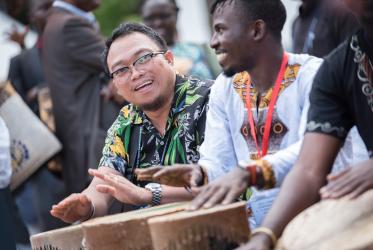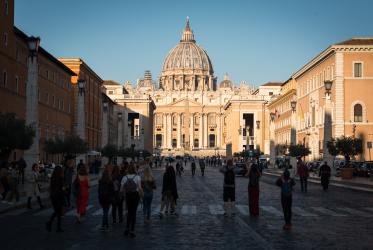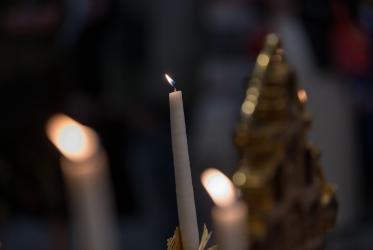Participant Rev. Felix Cornelius Agyei, from the Presbyterian Church of Ghana, said the institute was eye-opening.
“For me, the knowledge and awareness that ecumenism is not only about different denominations meeting together for prayer and programs but also concerns Faith and Order, Life and Work, and missiological issues are so inspiring,” said Agyei. "This is because, in my context, the issues of faith and order, and the call for missions are not emphasised strongly in ecumenical gatherings.”
Agyei intends to organize conferences and seminars, in consultation with his church leadership, on topics such as creation care, servant leadership, and ecumenism to sensitize both the clergy and lay leadership of the church. “This will lead to a joint declaration and action insofar as those issues are concerned,” he said. “Secondly, as a resident pastor, I am going to make sure these issues are well-addressed in my congregation.”
He also intends to publish some articles that will raise critical issues for those in academia.
Agyei considers the Regional Ecumenical Theological Institute a life-transforming experience. “It affords you to rethink your theology and interpretations carefully, considering the different African perspectives,” he said. “It does not only offer theological responses to existential questions which the church has not emphasized, but more importantly, it offers practical ways of addressing those issues from various African contexts.”
Participant Rev. Sandrine Motio, from Cameroon, said that the institute was impactful. “Many of us, especially me, reconsidered our theological orientation,” she said. “The thematics developed helped us to grow in our knowledge toward care for creation and intercultural ecumenism.”
Motio also valued the opportunity to clear misconceptions people had towards others from different countries.
“I intend, when I return to my country, to immediately start sharing,” she said. “Therefore, with the knowledge acquired through the institute, I will begin to organize a platform as a network especially for young men and women in the village where my congregation is located.”
She also plans to include the themes from the institute in Bible study sessions in the church. “If I have an opportunity in my university, I would like to share during conferences about the importance of ecumenism and peace-building—these are crucial in Cameroon and for Cameroonians.
Motio also said the institute helped build her capacity to be a leader. “The Regional Ecumenical Theological Institute is not just a benefit for theologians but also for all those who seek peace, love, reconciliation, and freedom, because it gives both spiritual and secular knowledge in this contemporary world.”
Rev. Prof. Dr Benjamin Simon, WCC programme executive for Ecumenical Theological Education, said: “At such a Regional Ecumenical Theological Institute, where students of many different denominations and church families are gathering together to learn from each other, nobody has to give up their identity; on the contrary, I have realised that the young colleagues are strengthening their views, but at the same time opening up fr a respectful togetherness."
Simon added: “Ecumenical and intercultural encounters through theological education and formation are the seedbed for the ecumenical movement; hence, these programs are a significant and lasting investment for the ecumenical movement but also for each single church."







